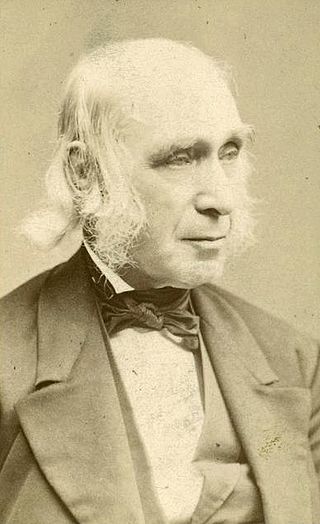
Amos Bronson Alcott was an American teacher, writer, philosopher, and reformer. As an educator, Alcott pioneered new ways of interacting with young students, focusing on a conversational style, and avoided traditional punishment. He hoped to perfect the human spirit and, to that end, advocated a plant-based diet. He was also an abolitionist and an advocate for women's rights.

Louisa May Alcott was an American novelist, short story writer, and poet best known as the author of the novel Little Women (1868) and its sequels Little Men (1871) and Jo's Boys (1886). Raised in New England by her transcendentalist parents, Abigail May and Amos Bronson Alcott, she grew up among many well-known intellectuals of the day, such as Ralph Waldo Emerson, Nathaniel Hawthorne, Henry David Thoreau, and Henry Wadsworth Longfellow.

Little Women is a coming-of-age novel written by American novelist Louisa May Alcott (1832–1888).

The Salem witch trials were a series of hearings and prosecutions of people accused of witchcraft in colonial Massachusetts between February 1692 and May 1693. More than 200 people were accused. Thirty people were found guilty, 19 of whom were executed by hanging. One other man, Giles Corey, was pressed to death after refusing to enter a plea, and at least five people died in jail.
Elizabeth "Betty" Parris was one of the young girls who accused other people of being witches during the Salem witch trials. The accusations made by Betty (Elizabeth) and her cousin Abigail Williams caused the direct death of 20 Salem residents: 19 were hanged, while another, Giles Corey, was pressed to death.

Anne Hutchinson was a Puritan spiritual advisor, religious reformer, and an important participant in the Antinomian Controversy which shook the infant Massachusetts Bay Colony from 1636 to 1638. Her strong religious convictions were at odds with the established Puritan clergy in the Boston area and her popularity and charisma helped create a theological schism that threatened the Puritan religious community in New England. She was eventually tried and convicted, then banished from the colony with many of her supporters.

Abigail May Alcott Nieriker was an American artist and the youngest sister of Louisa May Alcott. She was the basis for the character Amy in her sister's semi-autobiographical novel Little Women (1868). She was named after her mother, Abigail May, and first called Abba, then Abby, and finally May, which she asked to be called in November 1863 when in her twenties.

Samuel Sewall was a judge, businessman, and printer in the Province of Massachusetts Bay, best known for his involvement in the Salem witch trials, for which he later apologized, and his essay The Selling of Joseph (1700), which criticized slavery. He served for many years as the chief justice of the Massachusetts Superior Court of Judicature, the province's high court.

Tituba Indian was an enslaved woman who was one of the first to be accused of witchcraft during the Salem witch trials of 1692-1693. She was brought to colonial Massachusetts from Barbados by Samuel Parris, the minister of Salem Village. She was pivotal in the trials because she confessed to witchcraft when examined by the authorities, giving credence to the accusations. She accused the two other women, Sarah Good and Sarah Osborne, of the same crime. She was imprisoned for over a year but never went to trial. It is unknown what happened to her after the case against her was dismissed by a grand jury in May 1693.
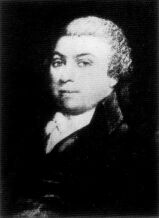
Samuel Sewall was an American lawyer and congressman. He was born in Boston in the Province of Massachusetts Bay.
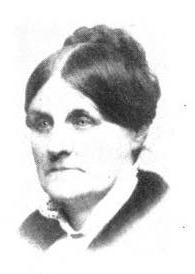
Abigail "Abba" Alcott was an American activist for several causes and one of the first paid social workers in the state of Massachusetts. She was the wife of transcendentalist Amos Bronson Alcott and mother of four daughters, including Civil War novelist Louisa May Alcott.
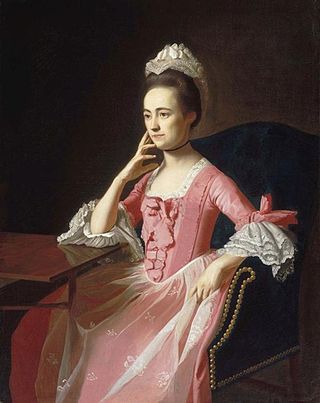
Dorothy Quincy Hancock Scott was an American hostess, daughter of Justice Edmund Quincy of Braintree and Boston, and the wife of Founding Father John Hancock. Her aunt, also named Dorothy Quincy, was the subject of Oliver Wendell Holmes' poem Dorothy Q.
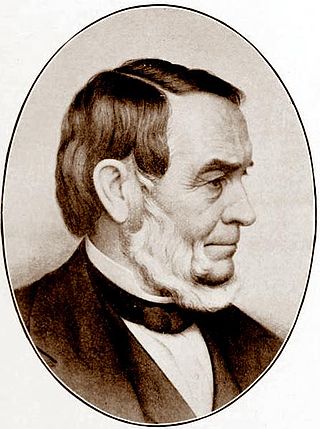
Samuel Joseph May was an American reformer during the nineteenth century who championed education, women's rights, and abolition of slavery. May argued on behalf of all working people that the rights of humanity were more important than the rights of property, and advocated for minimum wages and legal limitations on the amassing of wealth.
Elizabeth Sewall "Lizzie" Alcott was one of the two younger sisters of Louisa May Alcott. She was born in 1835 and died at the age of 22 from scarlet fever.
Deodat Lawson was a minister in Salem Village from 1684 to 1688 and is famous for a 10-page pamphlet describing the witchcraft accusations in the early spring of 1692. The pamphlet was billed as "collected by Deodat Lawson" and printed within the year in Boston, Massachusetts.
Anna Bronson Alcott Pratt was the elder sister of American novelist Louisa May Alcott. She was the basis for the character Margaret "Meg" of Little Women (1868), her sister's classic, semi-autobiographical novel.
Francis Marbury (1555–1611) was a Cambridge-educated English cleric, schoolmaster and playwright. He is best known for being the father of Anne Hutchinson, considered the most famous English woman in colonial America, and Katherine Marbury Scott, the first known woman to convert to Quakerism in the United States.
Edward Hutchinson (1613–1675) was the oldest child of Massachusetts and Rhode Island magistrate William Hutchinson and his wife, the dissident minister Anne Hutchinson. He is noted for making peace with the authorities following his mother's banishment from Massachusetts during the Antinomian Controversy, returning to Boston, and ultimately dying in the service of the colony that had treated his family so harshly.
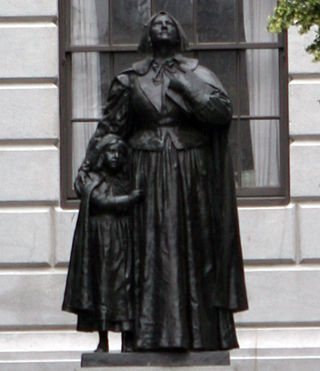
Susanna Cole was the lone survivor of an American Indian attack in which many of her siblings were killed, as well as her famed mother Anne Hutchinson. She was taken captive following the attack and held for several years before her release.












